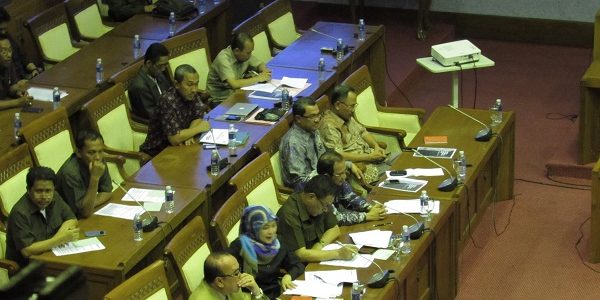
In the making process of Law Number 2 of 2004 on Industrial Relations Dispute Settlement, LBH Jakarta delivered a number of criticisms of mechanisms. Some of these criticisms specifically directed towards provision of the settlement period that did not correspond to the real conditions, the process of filing a stiff and very formal, canalization into disputes over rights violations, and so forth. The criticism was later shown in some cases that dealt with LBH Jakarta in previous years through the efforts PPHI the violation period and the decision cannot be implemented. However, the ineffectiveness of the new PPHI required deeper study and analysis to generate useful recommendations for policy change. Therefore, LBH Jakarta in 2013 doing research decisions that industrial relations were at the stage of the Supreme Court (appeal or judicial review). The flow of this research done by indexing over the Supreme Court decision was on appeal and judicial review. In conducting the research decision PHHI, LBH Jakarta was in collaboration with the Judicial Monitoring Society (MAPPI FHUI). Time of this report, the research was still running in the indexation phase Supreme Court decision which amounts to approximately 3,066 decisions.
The purpose of the research execution of the decision of the PHI is First to provide reference materials in the form of decision analysis that can be used by lawyers or legal aid agencies in carrying out advocacy advocacy. Second is to analyze and take the essence of the key cases in order to get the learning that can support the advocacy work in the improvements of Indonesian justice system. Third is to continue advocacy of research findings to stakeholders who can influence the improvement of the justice system in Indonesia.
The expected impacts of the Decision Research Program Industrial Dispute are: first, increasing relevance of advocacy through the availability of quality research data that form the basis of advocacy activities; the second one is to strengthen of ties of cooperation between Civil Society advocacies with academics; the third one is the process of discussion and dialogue between researchers and relevant stakeholders, about the things that need to be fixed in the justice system in Indonesia. Particularly is regardly to strategic issues that are the focus of legal aid work.






